Free Speech is a big topic for the Government as they move towards legislation to address concerns about non-compliance in HEIs. Research agency-to-be ARIA has launched and the 2021 application data shows another rise in applicant numbers.
Best of all BU readers can read our latest Horizon Scan covering all the HE priorities here ahead of the budget on March 6th. We are not expecting much about HE in the budget – especially as the next set of decisions about students returning to campus (and the next set of discussion about accommodation costs) have been postponed until “before the end of the Easter holidays”.
ICYMI, the government has published the outcome of their joint consultation with Ofqual on this summer’s academic and vocational assessments and Gavin “there must be exams if at all possible” Williamson seems to have a change of heart, leaving some anxious about grade inflation and others anxious about who will get the blame for that, and also if this year there is a similar disparity between the privileged and the less privileged when the results come out.
Covid
Universities Minister, Michelle Donelan, shared a letter to students on her Twitter feed. It explains why the Government continue to restrict which students may return to campus despite her confidence that in-person teaching and learning can be delivered in COVID-secure environments. She explains the mass movement of students across the country poses a risk for the transmission of the virus – particularly because of the higher prevalence and rates of transmission of new variants.
Students on practical and creative courses who need specialist equipment or facilities in theory can return from 8 March and the letter promises the Government will review timing for return of all other students by the end of the Easter holidays. These students are to be given (at least) one week’s notice of permission to return. The letter also urges students to take part in regular Covid testing and reminds of the Government’s additional £70 million hardship funding support for students. The details of the Government’s Covid roadmap which explains the staged relaxation of restrictions is here.
There is a PQ on adjusting the use of face coverings to minimise the impact for deaf students.
A parliamentary question regarding the loan of books to students who are studying at home during the covid-19 lockdown
Accommodation: With the many students still not permitted to return to campus because of the restrictions Research Professional cover the National Student Accommodation Survey 2021, run by the student advice website Save the Student.
- The survey claims to have calculated that nearly £1 billion has been spent by students on unused accommodation in the UK so far in 2020-21. The figure is based on the splicing of a survey of just 1,300 students with Higher Education Statistics Agency data on student accommodation, so it is fair to say there are question marks. However, it rightly draws attention to an important issue and it could well gain traction in the papers today.
- Arguably more interesting are the stand-alone findings of the survey. Some 46 per cent of those canvassed said they would have chosen different accommodation had they known what to expect from the pandemic. Worryingly, only 6 per cent of students renting from a private landlord said they had received a refund.
- Hillary Gyebi-Ababio, vice-president for higher education at the National Union of Students, said that students had been “consistently exploited and ignored during this pandemic”.
- “We are seen as cash cows, with many stuck paying extortionate rents for properties they either cannot use or cannot afford,” she said. “This survey makes clear that the £50 million in hardship funding is a drop in the ocean compared to the eye-watering costs that students are facing. If Westminster did the right thing and matched the hardship funding being made available in Wales for students, the amount needed would be more than £700m.”
For those following the student related petitions on Tuesday the Petitions Committee agreed to accept the Government’s revised response for: Enable all students to end university tenancy agreements early due to Covid-19.
The approach to students in the roadmap document is indicative of the approach throughout the pandemic – it is all just too hard. It is too hard to help students with accommodation costs paid mostly to private landlords, (except by offering short-term hardship funding) and the cost of the student loan scheme makes it a difficult argument with the Treasury. The problem for the government is that across the sector, an awful lot of the accommodation costs for rooms that students can’t use, aren’t paid for from loan payments but by students themselves from part-time jobs that they can’t get, or by parents. And as highlighted by Rosemary Bennett in the report we cover below, parents are influential as voters and as constituents. And there has been a lot of blame thrown at students for spreading the virus in the autumn, although Wonkhe say that while they may have spread it amongst themselves it doesn’t appear that they spread it amongst the wider population. So the problem of student movements has been pushed into the long grass (i.e. before the end of the Easter holidays).
Infection Rates: Dods report on a study conducted by Public Health England (PHE) which estimates that fewer than one in five university students in England had Covid-19 by the end of autumn term:
- The study was carried out among the HE student population in England between 2 and 11 December 2020 at five universities across the country and found that, overall, 17.8% of 17 to 25 year-old students had antibodies from prior Covid-19 infection.
- The proportion of university students with antibodies to COVID-19 was highest amongst younger students, most likely to represent first-year undergraduates and particularly those living in university halls of residence.
- Students aged 17 to 19 years had 4.1 times greater odds of being seropositive than 23 to 25 year olds.
- In halls of residence, which had reported high case rates of COVID-19 infection during the autumn term, an estimated 49% of students were found to have antibodies, highlighting the extent of spread within these specific settings when cases rates were high.
- Overall, those living in halls of residence had 2.9 times greater odds of testing seropositive than those living in other accommodation types.
- Similar research carried out for the Scientific Advisory Group for Emergencies (SAGE) found that the overall distribution of outbreaks were consistent with expected importation from student intake from the wide community, and said that the level of student adherence to testing and isolation is likely to have a far larger effect than subtleties between different staggered return regimes.
- It also concludes that while asymptomatic testing programs likely did help to prevent large outbreaks, “extremely frequent testing” (all students, every 3 days) would be needed now to prevent a major outbreak under plausible parameters for the currently dominant variant in the UK.
Wonkhe have: Half of students in halls got Covid. Although you’ll note that the comments on the article take issue highlighting that the headline figure should be 29% of students in halls, not half.
Statistics: The Department for Education have published a summary of ad hoc statistics on confirmed Covid-19 cases known to higher education providers between 1 August 2020 and 3 February 2021. The full data release, including charts and table, is here.
Research
ARPA/ARIA: The Government announced the launch of the ARPA-inspired Advanced Research & Invention Agency (ARIA), the new research body which will fund and support the high risk, high reward science research and innovations. (Our musician readers will see the irony of a collaborative research endeavour being named ARIA.) The written ministerial statement is here. There is little new news, so we’ll cover the basics as quickly as possible:
- £800 million funding
- Independent of government and led by some of the world’s most visionary scientists.
- To conduct pioneering research with flexibility and speed, for example, by looking at how to avoid unnecessary bureaucracy.
- It will experiment with funding models including program grants, seed grants, and prize incentives, and will have the capability to start and stop projects according to their success, redirecting funding where necessary.
- It will have a much higher tolerance for failure than is normal, recognising that in research the freedom to fail is often also the freedom to succeed.
- Legislation to create the new research agency will be introduced to Parliament as soon as parliamentary time allows. The aim is for it to be fully operational by 2022. The new agency will complement the work of UKRI while building on the Government’s R&D Roadmap.
- Previous reports that ARIA would be exempt from FoI legislation have been unconfirmed by BEIS.
- The recruitment of an interim Chief Executive and Chair to shape the vision, direction and research priorities for the agency will commence shortly.
Last week the Science and Technology Committee published their inquiry report – while the panel felt there was room for such a body, they also noted that to date it seemed like “a brand in search of a product.” They also argue that the Government should identify a specific client for UK ARPA, which will make its remit, organisation and governance much clearer. Dods suggest that the appointment of the Chief Executive and Chair will shape the direction of the new organisation and find the “product” to match the “brand”. An interesting comment given the string of accusations over recent partisan appointments made to high profile posts under the current Government.
In fact, the Science and Technology Committee made a number of comments and recommendations on the ARPA style new organisation. You can read a short summary by Dods here. The recommendations include:
- Given the size of UK ARPA’s proposed budget we recommend that the new agency focuses on no more than two strategically important missions. This will increase the agency’s chances of delivering on its stated aims of making breakthroughs with transformative implications…
- The Government must think carefully about what the new agency’s focus might be before recruiting a director.
- The Government should be open minded on who the new agency’s director might be, should not disregard anyone at this early stage, and should be open to appointing an individual with a bold vision, creativity and drive.
- Multi-year funding settlements
Science and Innovation Minister Amanda Solloway said:
- The UK’s scientific community has a proud history of discovery, producing iconic inventors such as Alan Turing whose imagination and creativity changed the world as we know it. But to rise to the challenges of the 21st century we need to equip our R&D community with a new scientific engine – one that embraces the idea that truly great successes come from taking great leaps into the unknown.
- ARIA will unleash our most inspirational scientists and inventors, empowering them with the freedom to drive forward their scientific vision and explore game-changing new ideas at a speed like never before. This will help to create new inventions, technologies and industries that will truly cement the UK’s status as a global science superpower.
Research Fundermentals have a blog on the new ARPA style research organisation.
Further support for Doctoral Students: Amanda Solloway, Minister for Science, Research and Innovation published a written ministerial statement on UKRI support for doctoral students. It confirmed UKRI funded PhD students will receive additional support.
- A further £7m will now be made available to allocate extensions, based on need, to those students still to complete their studies. Additionally, UKRI are exploring options to increase flexibility for grant holding organisations to allocate existing funding for training and cohort development activity to fund extensions.
- Research England will also be delivering around £11m of block grant funding to English universities as a contribution to their support for their postgraduate research communities, including to students funded by universities themselves and to self-financed students.
- By the end of this phase of support funding, UKRI will have provided additional support totalling £70m, including extensions, to around half of all their funded students who were studying at the start of the first lockdown extension. This support has been targeted at those most in need and with equality, diversity and inclusion considered throughout.
It is believed the additional funding is that which was not used/taken up for extensions for students in their final year. It will now be available for UKRI-funded students in other years.
Professor Dame Ottoline Leyser has written an open letter explaining how this, together with £11m in new block grants to English universities, is supporting doctoral students. The £11m will be made available to English universities via Research England. This will support the work those organisations are undertaking to help their postgraduate research communities, including those not funded with UKRI studentships.
UKRI has also written to training grant holders exploring options to increase the flexibility to use training and cohort development funding to fund extensions. It is also consulting training grant holders on providing flexibility to reduce recruitment in 2021/22. This would release funding for extensions for current students, and on whether to extend eligibility for extensions.
R&D tax credit rules: Dods tell us that:
- …eight industry leaders have united behind a call on the Chancellor to reform outdated R&D rules in order to release £4bn of growth every year. The Chancellor is being urged by a coalition of top industry leaders to kickstart the recovery and levelling up by allowing capital expenditure to qualify for R&D tax credits. The new report by a former Bank of England economist is backed by the ABPI, CBI, Tech UK, UKspace, ABHI, ADS Group, Food and Drink Federation and Make UK, and shows how reforms to R&D tax credits would kickstart recovery and create at least 12,000 new jobs in tech and advanced manufacturing.
- The proposal to enhance R&D tax credits means the actual sites and machinery used for the R&D would be included. The report shows how this would create a powerful new incentive for UK-based investment, which would drive big benefits and rapidly pay for the cost of the policy
- In a 10-year forecast on the impact of the policy, the report shows it would be adding £4bn a year to the economy within that timeframe;
- At least 12,000 jobs would be created, mostly in high-skilled manufacturing areas such as new medicines, robotics and clean energy;
- The policy would also drive higher wages, as well as jobs and growth, in some of the regions most in need of levelling up, including in the North of England and Midlands;
- By year seven, the £430m a year cost to the Exchequer (in foregone revenue from the tax relief) is paid up in full and the policy is producing a net gain to government in tax receipts.
The report is here.
Free Speech
A DfE policy paper was issued on 16th Feb 2021 featuring a heartfelt and revealing introduction by Secretary of State for Education, Gavin Williamson. There are lots of proposals, without much detail yet available on implementation, and a lot of rhetoric.
This is an attempt to go further on free speech concerns (especially among commentators who might be described as tending towards the right in politics) by trying to address the perceived cultural problem of left-wing bias in universities, which the paper claims has a “chilling” effect on staff and students who would otherwise speak up with different views. And, although not necessarily a left-wing view, the position of many in the sector on Brexit is also cited as a problem
The proposals include:
- A new Free Speech champion who can investigate and recommend redress,
- A new OfS registration condition (the existing one is indirectly via a requirement to comply with the Public Interest Principles), with sanctions for breaches including financial penalties.
- Will strengthen the existing statutory framework for this by requiring HEIs to “actively promote” free speech.
- Will introduce a direct right to compensation for individuals and extend the protection for academic freedom to recruitment and promotion.
- An extension of the rules to SUs: The Secretary of State’s letter to university responsible officers states: These strengthened legal duties will extend to students’ unions, which for the first time will have to take steps to ensure that lawful free speech is secured for their members and others, including visiting speakers.
The written ministerial statement on the free speech paper is here.
- Despite protections which are currently in place, a body of research has shown evidence of a ‘chilling effect’ on students and staff, who report feeling unable freely to express their views within the law without fear of repercussion. This is emphasised by a small number of high-profile incidents…The Government therefore considers it necessary to take action, including by amending legislation.
- Freedom of speech and academic freedom are fundamental principles of university life, and it is our duty to afford the necessary protections where these are found to be lacking.
Jim Dickinson and David Kernohan have a good article on Wonkhe: Government free speech proposals represent a breakdown of trust and confidence.
- Most of the 15,000 words…and the accompanying press release is really a summary of previous interventions from think tanks, commentators, dodgy “research” from campaign groups, MPs and government ministers…
And concludes:
- What this would represent – in the unlikely event that it progresses through to legislation intact – would be the most dramatically interventionist set of powers for a government regulator into the currently self-governing affairs of universities we’ve ever seen.
- It represents a breakdown of trust – between DfE and universities, between DfE and the Office for Students and between the Office for Students and just about everyone else. And if you believe that the government should be concentrating on more important matters right now, as it gives itself such specifically invasive powers over the sector, you might ask why it is doing so to intervene in the culture wars rather than the wide range of things students actually say they care about.
Wonkhe also have a blog from Jack Harvey at Coventry Students’ Union: Should culture on campus demonstrate tolerance or respect for controversial views?
- Cambridge University seemed to have confused its free speech policy for its expectations of decorum. It’s fine to ask academics to be courteous to one another, but they cannot be compelled to be receptive to intellectual stupidity.
- …we find two problems. The first concerns tolerance itself, a tricky concept to pin down. The second concerns the validity of the claim that tolerance is a liberal value; several modern scholars see a certain type of toleration, that of religion, as a careless invitation to the enemies of liberal society to strike it down. Liberals should be tolerant up to a point, it seems.
- Those in positions of power suspect universities to be hotbeds of censorship and illiberalism – they are under pressure to show their commitment to free speech and liberal values. Some might turn to Cambridge for an answer, but they will find that toleration is neither easy to define nor a cherished value…
- On campus, it’s a tricky balance. Toleration based too much on respect and esteem puts academics in an awkward position, having to speak kindly about arguments that don’t make sense – but toleration based too much on permission without respect could lead to an unforgiving atmosphere in which potential newcomers to academic debate are thrown out.
Research Professional also have good coverage of the free speech agenda in Ashen Wednesday:
- The paper itself can be accessed in full online, but to undermine its contents you don’t really need to look much further than the introduction by education secretary Gavin Williamson and the list of footnotes revealing what much of the paper is based on.
- For example, the proposals manage to refer to just two Policy Exchange reports on six separate occasions—the 2019 and 2020 iterations of its Academic Freedom in the UK publication. Both were roundly criticised at the time, perhaps most notably in The Guardian by King’s College London professor Jonathan Portes.
- … we have already spent enough time going round in circles explaining why the oft-cited examples of free speech suppression on campus are complete poppycock. Perhaps the more intriguing point here is the increasingly pervasive influence of Policy Exchange in university oversight.
- Just under a year ago, it was Research Professional News that first revealed that Iain Mansfield was to leave his role as head of education, skills, science and innovation at Policy Exchange to take up his role as a special adviser to Williamson. More recently, the government announced that its preferred candidate to be the next chair of the Office for Students was James Wharton, a senior fellow at Policy Exchange. The House of Lords’ register of interests also states that GBMW, Wharton’s own company, which provides strategic and management advice, counts Policy Exchange among its clients.
- This is not a suggestion of wrongdoing. It is inevitable that the agendas and ambitions of different government departments will chime more closely with some think tanks than with others. Playbook wonders, though, whether a government and think tank have ever shared as much synergy as appears to be on display on this particular occasion
- In his opening remarks, Williamson refers to the King’s research and notes “a shocking finding…that a quarter of students saw violence as an acceptable response to some forms of speech”… The King’s report states that, according to a survey, “One in four students (26 per cent) think that violence can be a justifiable response to hate speech or racially charged comments. However, this is not dramatically higher than the 20 per cent of the general public who feel the same.” Hate speech. Not “some forms of speech”, as Williamson mealy-mouths it, but hate speech. We are not for a moment condoning violence. But it should be considered a red flag if those arguing for greater protection of free speech on university campuses are using statistics that relate to hate speech while making their case. Conflating these two terms has no place in any sensible debate on the topic.
- … As Paul Blomfield, chair of the All-Party Parliamentary Group for Students, told Playbook last week: “I’m deeply conscious, if you look back, that whenever the Tories are in trouble, or just looking for issues to blow out of proportion, they keep going back to free speech in universities.” If that is indeed the aim, the publication of the policy paper seems to have done its job very well.
Williamson’s War on Woke: Dods political monitoring consultants run a podcast series which analyses the policy behind the politics. They are 15 minute podcasts and this one focusses on the Government’s ‘war on woke’ and new plans for freedom of speech at universities.
Non-disclosure agreements: Chris Skidmore has a piece on Research Professional about what he calls the “real” freedom of speech issue, the use (or misuse) of non-disclosure agreements. This is not a new issue, it has been raised before, and Chris calls for regulation and prohibition.
Public perception of the sector
HEPI have a report that might help with some of the issues identified above: Mixed Media: What Universities Need to Know About Journalism by the former Education Editor of The Times, Rosemary Bennett.
Rosemary Bennett, the author of the new report, said:
- ‘Universities have become front page news, and not in a way that has been entirely flattering. This is not the result of a media vendetta or secret briefings from politicians, but of greater scrutiny – the sort of scrutiny most other sectors both public and private have become used to. The size of the sector, the growth in the number of young people going to higher education and the cost to taxpayers have quite naturally led newspapers, broadcasters and digital news sites to find out more about higher education.
- ‘The other change is in tone. The increase in annual tuition fees to £9,250 in England and other escalating costs of student life, in many cases funded directly by parents, have resulted in universities becoming an important consumer story. That has resulted in the media championing the cause of students and whether or not they are getting a good deal. It makes it harder for universities to get their case across and explains why there has been such intense interest in high levels of vice-chancellors’ pay, the sharp increase in unconditional offers and grade inflation.
- ‘Universities have not helped themselves by treating these three issues as matters of secondary importance, and more generally by not clearly explaining what exactly £9,250 a year is paying for. It is not enough to say a degree means a better career, a higher salary or a more fulfilling life. An explanation has to focus what is on offer during the years of study. This has become particularly pressing with teaching moving online during the pandemic and libraries and other facilities shut or hard to use.
- ‘Universities are highly accomplished at promoting their research in the media. In my paper I suggest they put equal effort into promoting their role in education. What new teaching methods are proving successful? How are they helping students catch up with learning they have lost out from during the pandemic? How can the popularity of English literature degrees be revived? These are all issues the media are interested in but hear little about from any institution.
- ‘Universities are often absent in public debates about education, giving the impression they are not particularly interested or detached from the rest of the sector. They need to join these public discussions, along with broader debates about the economy, mental health and free speech, for example, where they have considerable expertise. The debate on education is particularly lively at the moment with, for example, the future of GCSEs and A-Levels being questioned. Universities, with their wide range of teaching and assessment methods, have expertise that would be very valuable.’
On free speech, the new paper says:
- ‘The culture wars are unpleasant and the free speech row rages on. Feelings run high on both sides and it is tricky territory. But universities are at the sharp end. They have had to balance the right to academic freedom and free speech with student demands for “safe spaces” and particular speakers to be no-platformed on the grounds of offensive or hate speech. Many within the sector believe the political intervention on this issue is unnecessary and the media coverage verges on the hysterical. The majority of the stories concern hastily cancelled speaker events and withdrawn academic appointments or research grants which feel to me like perfectly legitimate territory for the media to investigate. I understand why universities stay out of the more general debate about free speech and its limits but it means the field is left clear for the zealots on either side.’
The future of the sector
If you read our last update on 11th Feb and have seen our latest horizon scan, you might be forgiven for feeling a bit gloomy about the future of the sector, given the government rhetoric, their refusal to offer meaningful support for students or institutions, and the issues with public perception described above.
So this blog from Professor Dave Phoenix, Vice-Chancellor, London South Bank University on HEPI is interesting:
- A Conservative government would normally be associated with a drive to remove regulation and free up providers to innovate. However, current indications suggest that we are about to move into a period of greater central control of tertiary education, which has the potential to limit choice and stifle innovation…
- The marketisation of higher education over the last decade has greatly increased the range and diversity of providers. It has not, as governments then and now hoped, led to a reduction in the sticker price of a degree at larger more established institutions. The removal of student number caps, which occurred shortly after the changes to fees, has however enabled a larger than ever proportion of school-leavers – often from lower socioeconomic backgrounds – to enter higher education… Rather than drive down the cost of higher education, marketisation has therefore led to an ever-larger bill to the Treasury; and as the demographics change and more people wish to obtain a university education, this is fuelling concerns about affordability.
- Unfortunately, in the Government’s eyes, these new young students are not necessarily choosing the ‘right’ courses for university study – those the Government believes will maximise their earnings and provide the associated loan repayments.
- We can see further evidence of Government influencing student choice in secondary education….
- Given the strong link between socioeconomic background, achievement rates at school and prospects upon graduation, there is a cause for concern that, taken together, these policies may push some learners into courses they may not have chosen – a far cry from student choice.
- …Whatever one’s point of view, it remains worth noting that we are in an era of growing government control of education. The risk is that this drives us down a path of least resistance with central initiatives leading to a narrowing of educational options at an ever earlier age.
- ….In Germany’s education system – beloved of so many Education Ministers – and elsewhere, those on a technical route actually study a wider range of subjects even than many of our GCSE pupils. In designing England’s new educational landscape there are two principles that we must keep in mind.
- These new qualifications need to be seen not in isolation but as part of an individual’s educational journey and designed with an understanding of both secondary and tertiary education pathways. They should create not restrict opportunity.
- If the Government is to deliver on the place-based rhetoric and levelling up agenda, it needs to ensure a risk-based system of oversight is brought into operation rather than trying to manage all things centrally.
And there is also this blog, an extract from this year’s Annual Lecture of the National Conference of University Professors (NCUP), which has just been delivered by Sir Anthony Seldon (the former Vice-Chancellor of the University of Buckingham):
- We need to stop being policy-takers, and become policy-makers. To end being agenda-followers, and become the agenda-setters. Cease being behind the media, and get out ahead of it. We have enormous power across the four nations in the economy and in society. The sector’s annual operation expenditure is close on £40 billion a year. Yet persistently, we punch below our weight.
- Government has a perfectly legitimate case for saying what it wants from higher education: it after all provides some of the money. But it has only a partial view, and a transactional one. This is the heart of the issue. Universities need to assert far more forcefully the pure educational and pure research cases for higher education. Universities for a start could be making the case far more strongly for non-vocational degrees, in the arts, humanities and social sciences, and for valuing education as a good in itself.
- …. Universities need to unify their voice and provide national leadership, as I have argued over the last five years. The usual response from the high command when I have said this is to huff and puff – but large numbers of university leaders and others across higher education agree. If we come across to government as plaintiffs and deferential, that is how they will treat us. My sense after writing about Downing Street and interviewing its staff intensively over the last 30 years is they are surprised that the sector does not stand taller. We need more attitude. To be, not more aggressive, but more assertive. We need a whiff of fear about us to permeate the corridors of Whitehall and Westminster…
- … While Universities UK does a very good job, not least the excellent President and Chief Executive, it is not geared up to be a body with agenda, power and voice…. Universities UK would need to be re-configured, learning from bodies like the Confederation of British Industry (CBI) about how public advocacy peak organisations operate…
- What is stopping universities becoming policy-makers rather than policy-takers? How will history judge us if we revert after COVID to the status quo ante? These are fair questions to ask.
Admissions
UCAS published their 2021 cycle figures from the 29 January application deadline for full-time undergraduate applications for courses that start in autumn 2021.
- Total applications for nursing courses have risen by almost a third (32%) to reach 60,130, with increases seen in each age group – from UK 18 year old school leavers (a record 16,560 applicants, up 27% on 2020) to mature students aged 35 and over, where for the first time over 10,000 (10,770, a 39% rise) have applied.
- 306,200 UK 18 year olds have applied, an increase of 11% on 2020. These applicants represent 42.6% of the 18 year old population, meaning this is the first year that more than 2/5 of young people have applied.
- Mature applicants (those aged 21 and over) from the UK have risen by 24% to 96,390. Previous UCAS research has shown applications from older age groups are also prone to increase when the economy is not as strong.
- The largest proportional increase in UK applicants by their declared ethnic group has come from black and mixed race students, both up 15% to 40,690 and 25,830 respectively. Applicants from the Asian ethnic group have increased by 10% to 70,140, while 11% more white students (to a total of 352,170) have applied.
- More than a quarter of students from the most disadvantaged areas (26.4% from quintile 1 of the UK using the POLAR4 measure, 33,960 students) have applied, up from 24.5% at the same point in 2020.
- Applicants from outside of the EU continue to rise and are up this year by 17% to a record 85,610. Applicants from China and India have increased to 25,810 (+21%) and 7,820 (+25%) respectively. The USA has seen the largest proportional increase of any major nation as applicant numbers have risen 61% to 6,670.
- EU applicant numbers have decreased to 26,010 (-40%) as the short term effects and uncertainty at the end of the last calendar year surrounding the UK’s withdrawal from the European Union, and changes to student support arrangements, have impacted on applications from the continent. However, applicants from Ireland have increased by 26% to reach 4,850.
Overall, a total of 616,360 people had applied, an increase of 8.5% and a new record for this point in the application cycle.
Clare Marchant, UCAS Chief Executive, covers all bases in her statement:
- The amazing work of our NHS continues to inspire people of all ages into fulfilling and rewarding careers, helping those in most need as we emerge from the pandemic.
- Overall, applications are buoyant as students plan their futures for life after lockdown. We expect offer rates to remain at the high levels of recent years as universities and colleges have several months to plan and be flexible to accommodate the increase in applicants.
- Many students will also have been inspired by last week’s National Apprenticeship Week and be looking at that route in parallel with an undergraduate application to keep their options open.
2021 assessments – decisions announced: The main points for HE about these announcements, widely covered in the press, relate to timing and the uncertainty created by appeals processes, although there are also questions about another bumper year of good results leading to potential for high admissions numbers across the sector this year (although it was very uneven last year).
Simon Lebus of Ofqual:
- We are working towards you receiving your results for AS and A levels on 10 August, and GCSEs on 12 August. Results for vocational or technical qualifications linked to moving on to further or higher education should also be issued to students either on or before these dates.
- A student unhappy with their grade would submit an appeal to the school or college, so that they could check whether an administrative error had been made. If a centre does find an error in the grade submitted, it can submit a revised grade for the board to consider. If a centre does not believe an error had been made, the centre will appeal to the exam board on the student’s behalf, and will be supported to do so.
- Vocational and technical qualifications (VTQ) students will be able to appeal on the same basis, but the exact nature of the processes might be a little different to reflect the different nature of the qualifications.
As noted above, Gavin “there must be exams if at all possible” Williamson has clearly changed his mind, dropping exams completely after all, which is a huge change from where he was when the consultation was launched. There will be an option for students to take an exam in November again (not many took this up last year, and despite vague requests for universities to admit students taking this up, there was no co-ordinated action on this). Students entered privately for exams will be studying the new arrangements carefully, they seem to focus on getting someone, somewhere, to assess work so they can get a centre assessed grade. The appeals process also seems to be much less onerous for schools than what was originally proposed. The links below include 2 new short consultations on the technical aspects including the detailed draft guidance for schools and colleges.
Fiona McIntyre covers it for Research Professional:
- The DfE said results will be published in the week of the 9 August to “provide additional time for appeals to be completed, so students reliant on those outcomes to achieve their university offer have the best chance of accessing a place”.
- It is understood that universities will be expected to hold places for students who are appealing their grades until early September.
And Chris Parr considers the implications on RP:
- This all means that, as last year, there could well be a record (or near-record) high in terms of the number of pupils achieving high grades. This, of course, has implications for university student recruitment—with higher-tariff institutions poised to hoover up candidates once again.
- Last year, there was a 13 per cent year-on-year rise in the number of domestic students recruited by high-tariff universities. As a Playbook analysis revealed earlier this year, all but one of the 20 Russell Group universities in England saw recruitment increase by more than 5 per cent last year, and most by double figures.
- Meanwhile, for medium and lower-tariff universities, a different type of pressure will be acutely felt if student recruitment again skews to higher-tariff providers. According to Ucas data, seven universities in England saw year-on-year recruitment of UK and European Union students fall by more than 10 per cent last year: Bath Spa University, the University of Bedfordshire, Coventry University, the University of East London, Harper Adams University, the University of Hertfordshire and the University of Surrey. A further 14 experienced declines of more than 5 per cent.
Wonkhe cover the story:
- Fifty-two percent of those [consultation] responses came from current schoolchildren.
- As yet, there are no clear signs that DfE have considered the impact on the higher education sector short of thinking about allowing space between a week-earlier results day and a potentially modified confirmation date for a more comprehensive appeals process.
And David Kernohan daringly suggests that unconditional offers would be a good idea (not sure that one will land!
- While currently willed together with glitter, hope, and fancy string, A level results still remain the only factor by which admission to most courses can be offered by higher education providers. With teachers moving to the outer reaches of the filing cabinet to determine these grades, should we not be encouraging universities to take advantage of Zoom interviews, bespoke assessments, portfolios, references, and UCAS personal statements to make offers? And – given that most of these rely on information that is known already – is there a sound reason why these should not be unconditional? And could some of these offers only become conditional if accepted, so providers would have some idea as to how many students would be arriving in September and thus how many more they could pick up in August?
- And – to be frank – couldn’t we do this every year?
The documents:
Next steps
- Technical consultation on A levels and GCSEs – this attaches draft guidance for centres and what they call “objectivity guidance” and the consultation is open until 11th March 2021
- Regulatory arrangements for VTQs – this is a further consultation on the detail of the arrangements which closes on 11th March 2021
Digital teaching and learning in the pandemic
The OfS have published the review of digital teaching and learning in the pandemic led by Sir Michael Barber (before he stepped down as chair of the OfS). You can read the press release here and there is a link to the full report.
Wonkhe have a critical long read by David Kernohan:
- There’s never been a great demand for online learning – niches have grown: the online professional masters, the bite sized MOOC – but the demand for campuses and lecture theatres has always hung on in there. Hip ideas like micro-credentials (I remember them as “digital badges”) and virtual words keep reappearing not because they are good, but because nobody wanted them.
- I’m not convinced that we’ll be as keen to leap onto a Zoom quiz when the pub is open. I’m leery that higher education being an activity that happens in a single room has legs beyond the day it can safely happen in a whole town filled with people, ideas, and experiences. We’ll take some of what we have learned with us, but the immediate future feels more like hedonism than hegemony.
Polling There is some associated polling, although we need to be aware of sample sizes
Of 536 teaching staff:
- only 21 per cent were ‘very confident’ they could design and deliver digital teaching during the pandemic – 59 per cent said they were fairly confident, and 18 per cent said they were not confident
- over a third (36 per cent) reported having no access to technical support whilst teaching digitally
- 23 per cent said they lacked the right technology to deliver teaching and learning
- 70 per cent of staff agreed that digital teaching and learning provides opportunities to teach in new and exciting ways.
Of 1285 students:
- 49 per cent said they were ‘very confident’ that they had the skills to benefit from online learning with 42 per cent somewhat confident
- 24 per cent said they lacked technical support while learning
- 15 per cent said they lacked the right technology while learning
- 28 per cent of students want to go back to exclusively in-person assessments once the pandemic is over – 32 per cent would prefer to be assessed online and 28 per cent would prefer a combination of digital and in-person methods
- 48 per cent of students said they were not asked for feedback on their digital teaching
- 56 per cent of students said the digital teaching they received was better than or in line with what their university or college said they would receive
The review captures core lessons from the mass transition to digital teaching during the pandemic. It suggests six steps that universities and colleges can follow before the start of the next academic year to immediately improve the digital teaching and learning on offer for students. These are:
- assess students’ digital access on a one-to-one basis and remove any barriers before learning is lost
- How will you apply our definition of digital access to identify challenges for new and returning students?
- What steps will you take to help students mitigate potential issues before they become a problem?
- Have you considered a range of scenarios? Are your plans flexible enough to accommodate uncertainty about the extent to which digital delivery will be required?
- communicate to new and returning students what digital skills they will need to engage with the course
- Do students know what skills they will need before term starts?
- Can they be directed to resources to develop them before starting their course?
- involve the student voice in teaching and learning design
- Do you have the mechanisms in place to involve students in any learning design for the coming year – planned or emergency?
- Will students have regular opportunities to provide feedback on their digital learning experience?
- equip staff with the right skills and resources to teach effectively
- How will you engage with staff to understand their skills needs?
- Do you have appropriate development mechanisms to make sure staff are well equipped for the new term?
- make the digital environment safe for all students
- How will you engage with staff to understand their skills needs?
- Do you have appropriate development mechanisms to make sure staff are well equipped for the new term?
- plan how you will seize the opportunity presented by digital teaching and learning in the longer-term.
- How will you engage with staff to understand their skills needs?
- Do you have appropriate development mechanisms to make sure staff are well equipped for the new term?
To deliver on the long-term promise of digital teaching and learning, the report argues that:
- it is vital that online learning doesn’t simply replicate traditional lectures or tutorials – it must be properly adapted to digital delivery
- universities should start planning now to make the most of these opportunities and ensure that learning from this period is not lost
- overcoming barriers to digital inclusion is essential – students will not benefit from online learning if they do not have the equipment and skills to access it
- digital teaching and learning could, itself, make great strides in improving access – for example in the additional flexibility it gives to mature learners or those with disabilities
- staff should also be supported to develop digital skills with incentives for continuous improvement
- universities have the opportunity to promote high-quality higher education abroad and engage a new generation of overseas students.
Sutton Trust/Covid
The Sutton Trust published the research brief Covid-19 and the University Experience. It contains some interesting facts and figures on what influences student participation, several are on themes we’ve seen before. Some interesting points:
- 47% of students reported taking part in no wider enrichment activities at all this term
- Comparing the autumn terms of 2019 (pre-pandemic) and 2020 students were also less likely to have taken part in work experience (down 6%), or paid work (down 5%). This was notable because these figures are lower than expected, perhaps because the autumn term usually sees less activity in these areas than other period of the year or because the survey framed these as extra-curricular activities.
- 87% of students reported barriers to participation in extra-curricular activities last term, including online activities. 29% who were put off by a lack of social interaction during online activities, and a further quarter (24%) cited “zoom-fatigue” as a barrier; not wanting to spend more time online after completing lectures and course content virtually.
- More students reported being unsatisfied with provision for activities beyond the classroom (36%) than were unsatisfied with academic provision (30%)
- Gaining skills and experience needed for employment was highlighted as the biggest current concern for students (76% were worried about this).
There are lots more statistics and detail on the influences surrounding student participation in the brief.
The second Sutton Trust publication out this week: The University of Life: Employability and essential life skills at university continues to analyse students’ participation, similar to the previous research brief, but draws in the implications of this for their future success. The first seven pages are well worth a read. Here are some limited snippets:
With more graduates applying for jobs in an increasingly competitive marketplace, it is clear that a student’s development of a wider set of employability skills, on top of their academic development, is vital. Findings in this report demonstrate that students core course alone does not help them to develop all of the skills employers are looking for, and that participation in a wide range of activities is needed for students to develop these skills.
Participation – Students take part in a wide range of activities outside of their core academic work at university. For recent graduates, carrying out paid work at university was common (79%), as was participation in student societies (61%). Many had also taken part in work experience (43%), but only a small proportion (12%) studied abroad during their degrees. However, participation differs substantially by socio-economic background. Just over half (52%) of recent graduates from working class backgrounds took part in student societies, compared to almost two thirds (64%) of better-off students. There is a similar gap in participation for work experience placements (36% vs 46%) and study abroad (9% vs 13%).
Development of essential life skills at university – While many graduates felt their university course had helped them to develop life skills such as communication (62%) and resilience (53%), fewer than half (43%) felt it had developed their motivation, and less than a quarter (24%) felt it helped them to develop leadership skills. Many of the skills not developed well by a student’s course were developed by other activities [although this varied across the activities] … 43% of those who took part in student societies felt it had developed their leadership skills, less than a third (29%) who did a work experience placement said the same. And while two thirds (66%) of students who took part in study abroad felt it improved their resilience, this was only about a quarter (23%) of those who took part in student societies. This variability in skills development across different activities shows the importance of students taking part in a wide range of pursuits during their degree.
34% of students reported they were living at home with their family while attending university, with consequent impacts on their experience of university life. Two thirds (66%) of those living away from home took part in extra-curricular activities, compared to 38% of those in their family home. Students from working class backgrounds were substantially more likely to be living at home during term.
Placement colleagues may want to read page 6 for familiar stats and messaging around affordability, page 9 also has some content and there are case studies on pages 57-58, and some final messages on page 60. Overall the content on placements isn’t particularly in depth.
How well do universities develop employability skills? – 29% did not feel that university had given them the skills they needed to get hired in the jobs they wanted after graduation. This figure was higher for students from working class backgrounds (33% vs 27% of middle-class students). 24% of graduates did not think their time at university gave them the skills needed to perform well in the sort of jobs they wanted. While most (73%) graduates felt their time at university helped them to develop social skills sufficiently, far fewer felt the same about their development of other skills, including networking (under half, at 45%), preparing job applications (45%) and job interviews (39%).
The recommendations are on page 7 with several focussed on students from lower socio-economic backgrounds.
International
The DfE and Department for International Trade have published the minutes for the 9 December 2020 Education Sector Advisory Group meeting. The cross-governmental group was set up to increase international opportunities for UK organisations in the education sector. The meeting was chaired by Graham Stuart, Minister for Exports, with Michelle Donelan, Minister for Universities, also in attendance. Guest speakers included Dan Ramsey, GREAT Campaign Director and Ed Matheson, International Trade in Education Services Policy team, DfE. The Advisory Group is expected to meet again on 13 April 2021.
Here is UUK International’s update from the minutes:
- Universities UK International reported that the UK HE sector is in a much better position than originally thought in terms of COVID-19 impacts. A recent enrolment survey of member institutions reported a 23% increase in some areas on student numbers.
- To date, the international strand of the #WeAreTogether campaign has reached more than 7 million people; achieved more than 2 million video views; supported a combined audience of 250,000 prospective international students via online events; and helped 67% of surveyed prospective international students feel more confident to continue with their plans to study in the UK after engaging with the campaign.
- UUKi expressed concern regarding the impact on EU student numbers post-transition. UUK published detailed guidance for institutions in October on managing security related risks in the context of internationalisation. UUKi have published research on TNE and the pipeline from TNE to onshore recruitment. Their upcoming research will focus on where the UK has lost market share (to be published in summer 2021).
PQ on why continuous residence in the UK under a Tier 1 (Graduate Entrepreneurship) visa does not count towards the five years continuous residency condition for indefinite leave to remain.
Non-continuation
The Higher Education Statistics Agency (HESA) have published the 2018/19 non-continuation UK performance indicators covering students not continuing into the 2019/20 academic year. (Charts here.)
- For young students who entered HE in 2017/18, the non-continuation rate across the UK was 6.8% across the UK and the highest was England at 6.9%.
- For mature students, the non-continuation rate was 13.6% across the UK, again England’s figure of 14% was higher than the devolved nations. Overall, for mature students who entered HE in 2016/17, the non-continuation rate across the UK was 33.9% across the UK (England’s rate was 32.9% (Wales highest at 39.1%).
- Non-continuation analysed by entry qualification the highest rates were:
- 8% for ‘No previous qualification’
- 1% for ‘Other qualifications not given elsewhere’
- 6% for ‘Level 3 and A level equivalent qualifications with unknown points’
- Specifically for A level entry grades, the rate ranges from 1.6% for AAAA and 4.4% for BCC or CCC.
- When looking at non-continuation by subject area the highest rates were:
- 8% for ‘Computer sciences’
- 1% for ‘Combined subjects’
- 4% for ‘Business and administrative studies’
- 4% for ‘Mass communication and documentation’
- The lowest non-continuation rate was in ‘Medicine, dentistry and veterinary science’ at 1.6%
- This table is interesting. It looks at students who have taken a year out and whether they return to HE study either at the same institution or another provider. It displays the data by individual university.
Other news
Money laundering: Dods cover a Times money laundering report:
- Higher education institutions have been accused of inadvertently facilitating money laundering, as The Times report that an investigation they’ve carried out finds that universities accepted millions of pounds in cash from students from ‘high-risk’ countries. They say that at least 49 British institutions let students use banknotes to pay £52m in fees over the past five years, including millions from China, India, Russia and Nigeria.
- Data obtained by The Times under freedom of information laws shows that the top cash-paying country was China. The universities that responded to the request, including some from the Russell Group, had received £7.7m in banknotes from Chinese students since 2015. This was followed by £1.8m from Indian students, £1.2m from students from Pakistan and £1.5m from Nigerian students.
- All universities said that they had strong due diligence procedures in place and some now refused to accept cash. Universities UK said: “Universities work together with the government, the police service and relevant sector bodies to help protect students and individual institutions from potential money -laundering activity.”
Lifelong Education (post-18 system): Former universities minister Chris Skidmore launched a new Lifelong Education Commission at the think tank ResPublica. The Commission will seek to recommend how barriers to lifelong learning can be removed, what future investment is needed to support this and what regulatory change is needed to ensure the maximum possible flexibility that will benefit learners.
The commission will also focus on the needs of the post-18 system, and how this needs to be designed so that both Higher and Further Education institutions are valued, and also on how the individual learner can be better empowered to make decisions and undertake their learning. Lessons can be learnt from abroad as well as mistakes made in the past, but post-Covid, the need to act differently than what has gone before will be essential.
The launch event covered:
- Qualification Reform: what existing qualifications, such as degree apprenticeships, need to be reformed to ensure they perform better? Flexible learning is essential for the future but will only work if the qualifications themselves are as flexible. How can this be achieved?
- Role of Universities in delivering Level 4/5 education as well as bitesize courses. Existing institutions can help roll out provision, what is needed to enhance this?
- Remote and online learning- how can this be harnessed better to deliver reform?
- Can we break down barriers between institutions to create a new form of ‘Open University’ that places power in the hands of learners to choose courses at different places of study?
- Who pays: how should lifelong learning be funded in the future?
- How can business and industry benefit from flexible learning rather than see it as an imposition or an added nice extra?
- How can a post-18 education system enhance provision from those affected by educational failure?
Panellists included Chris Skidmore MP; Prof. David Latchman, VC, Birkbeck University London; Prof. Edward Peck, VC, Nottingham Trent University; and Phillip Blond, ResPublica (Chair). You can view the event recording and Skidmore’s speech.
Publishing: Jisc and Oxford University Press announced their Read and Publish agreement. It runs from 2021 to 2023 and will: allow authors at participating institutions to publish 100% of their original research open access in OUP’s hybrid and fully open access journals. The agreement offers UK researchers a robust route to compliance with funder policies.
Language placements: On Tuesday the Guardian commented on the cancellation of language placements in Brexit limbo. The Guardian write up stated: UK language students hoping to do the traditional year abroad studying are caught in limbo after facing disruption to their travel plans due to post-Brexit red tape and costs. Universities say they received inadequate guidance from the government about the situation which has led to conflicting advice and students having to cancel or postpone placement.
Subscribe!
To subscribe to the weekly policy update simply email policy@bournemouth.ac.uk. A BU email address is required to subscribe.
External readers: Thank you to our external readers who enjoy our policy updates. Not all our content is accessible to external readers, but you can continue to read our updates which omit the restricted content on the policy pages of the BU Research Blog – here’s the link.
Did you know? Some links require access to a BU account- BU staff not able to click through to an external link should contact eresourceshelp@bournemouth.ac.uk for further assistance.
JANE FORSTER | SARAH CARTER
VC’s Policy Advisor Policy & Public Affairs Officer
Follow: @PolicyBU on Twitter | policy@bournemouth.ac.uk
 The RDS Funding Development Briefings now occur weekly, on a Wednesday at 12 noon.
The RDS Funding Development Briefings now occur weekly, on a Wednesday at 12 noon. On Monday we focussed on the work of the Research Ethics Panel and yesterday we heard from Dr Orlanda Harvey who visited the Social Sciences & Humanities Research Panel as part of her PhD journey.
On Monday we focussed on the work of the Research Ethics Panel and yesterday we heard from Dr Orlanda Harvey who visited the Social Sciences & Humanities Research Panel as part of her PhD journey.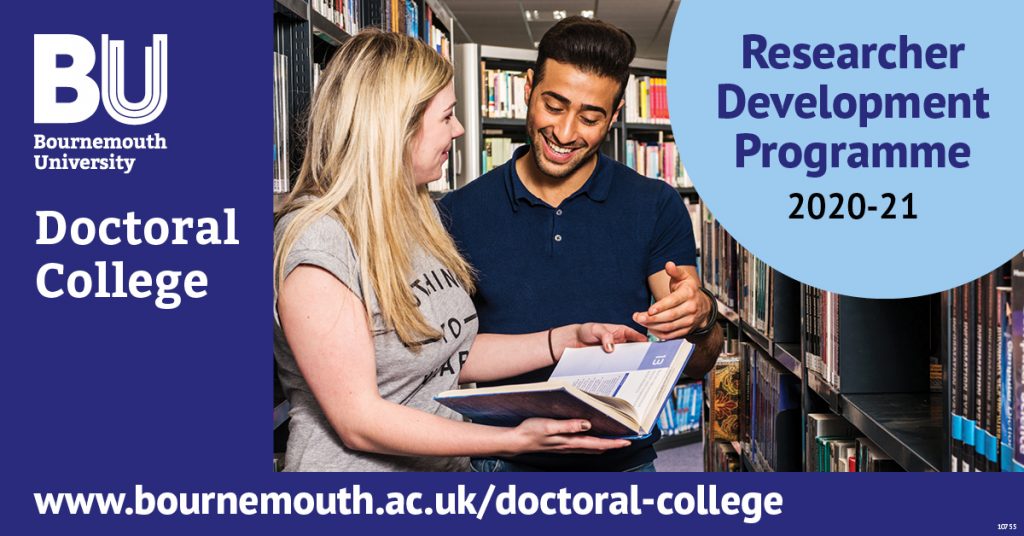
 Speaker Information:
Speaker Information: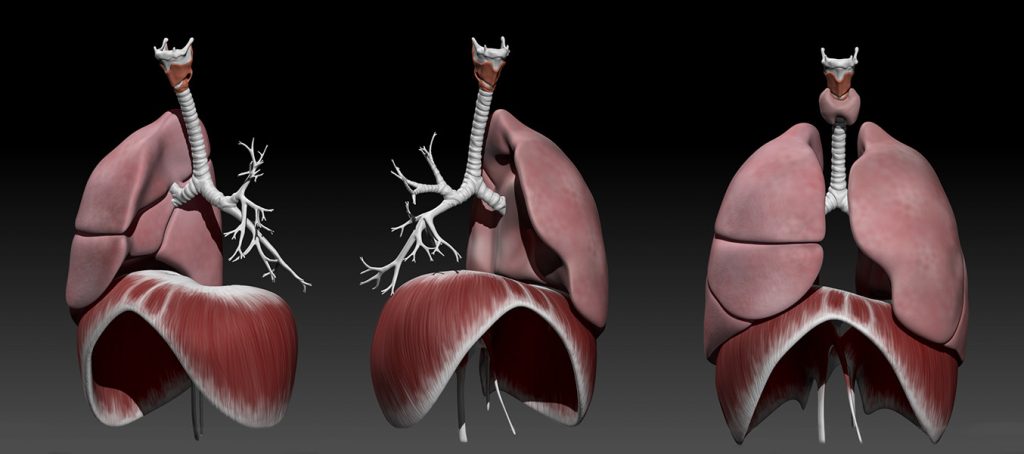
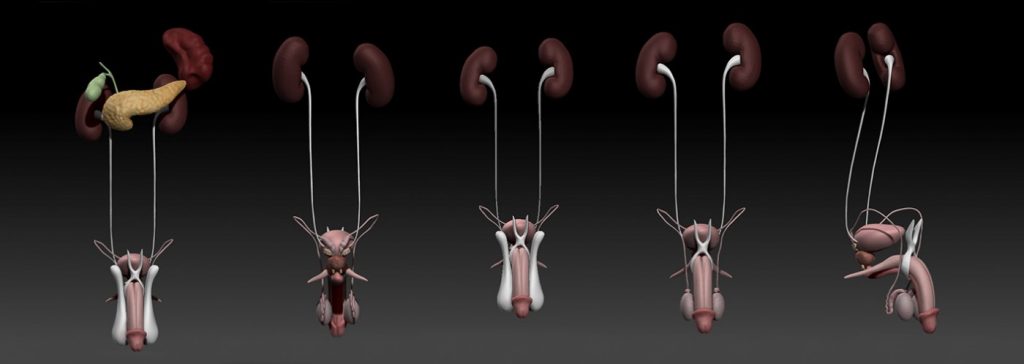
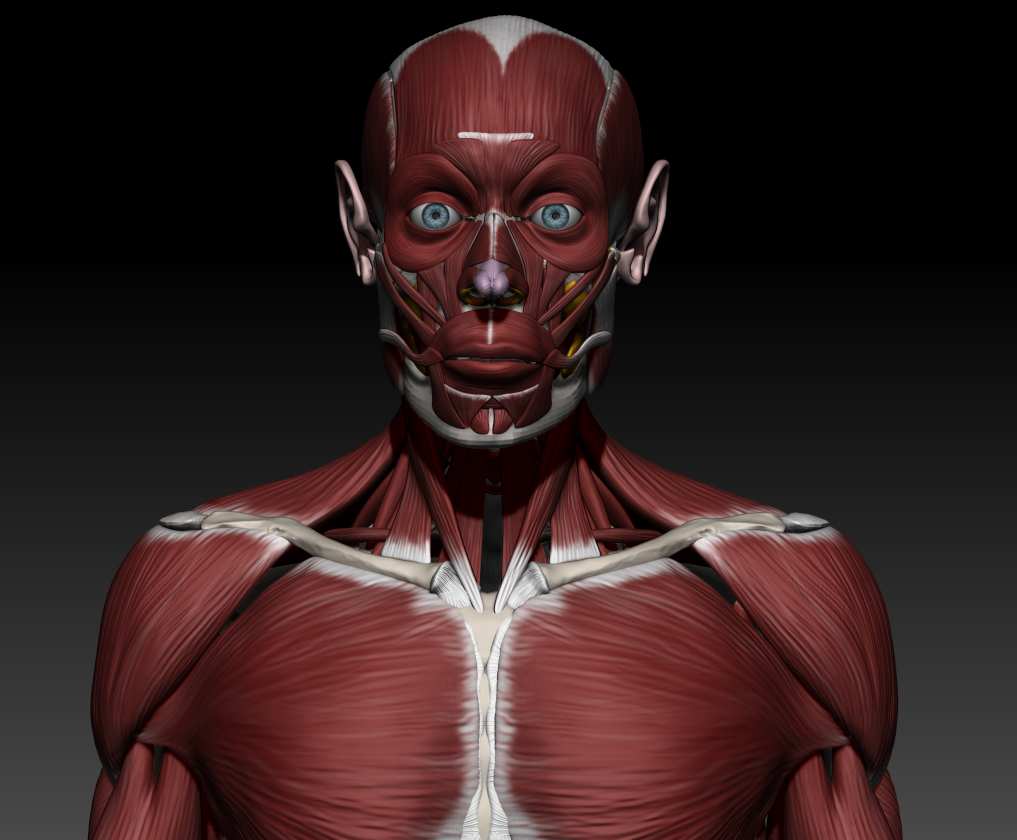
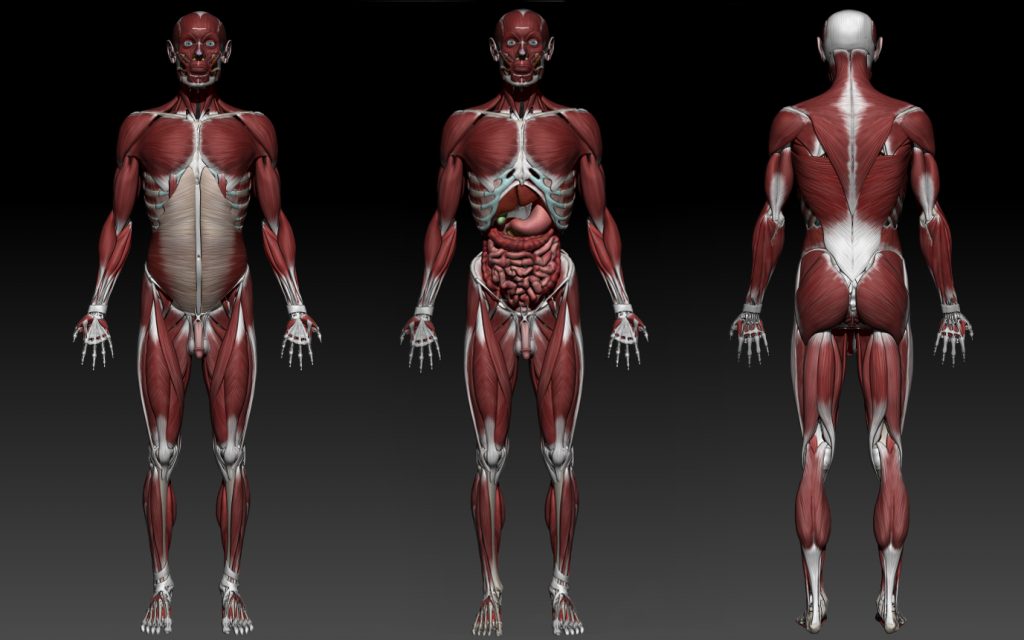
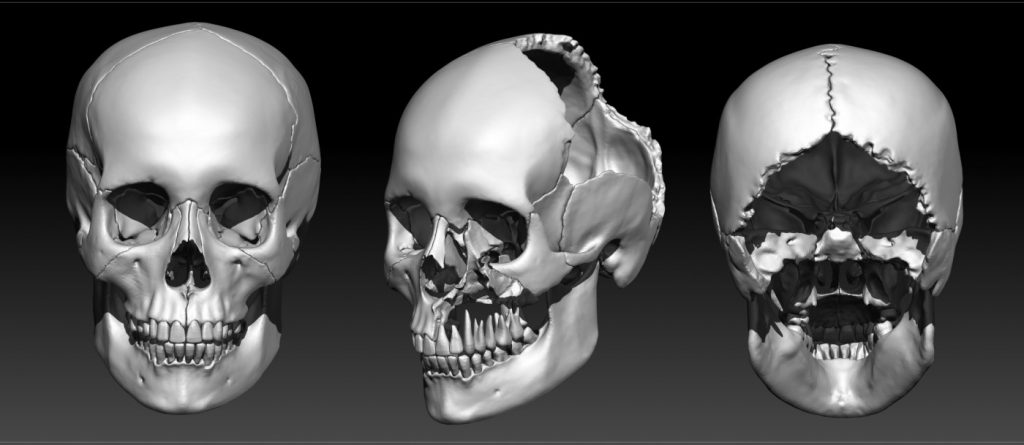
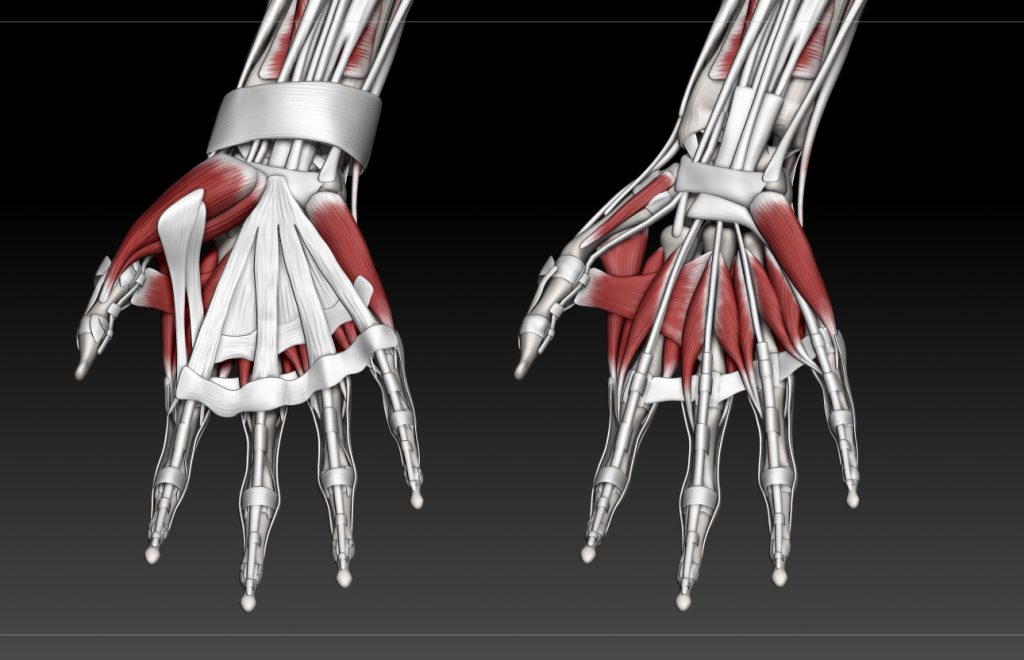
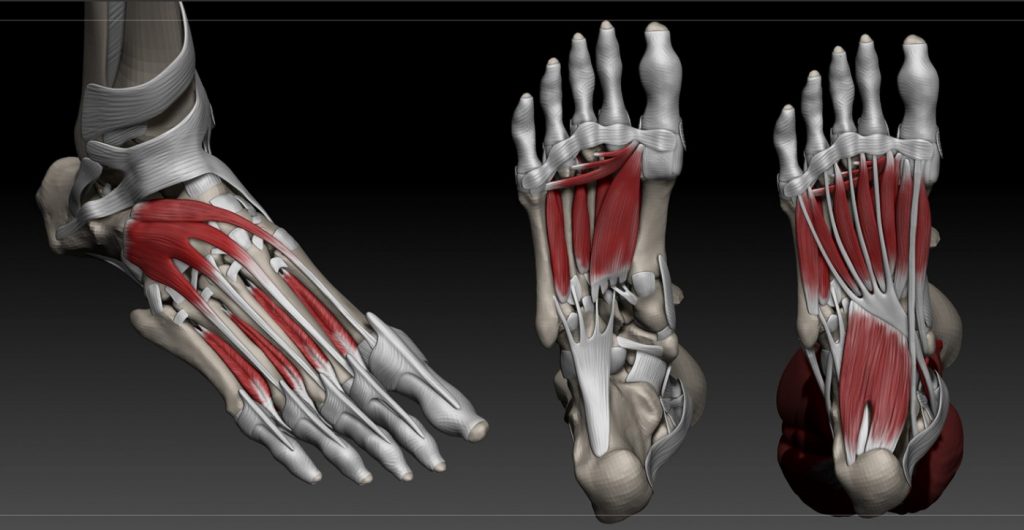
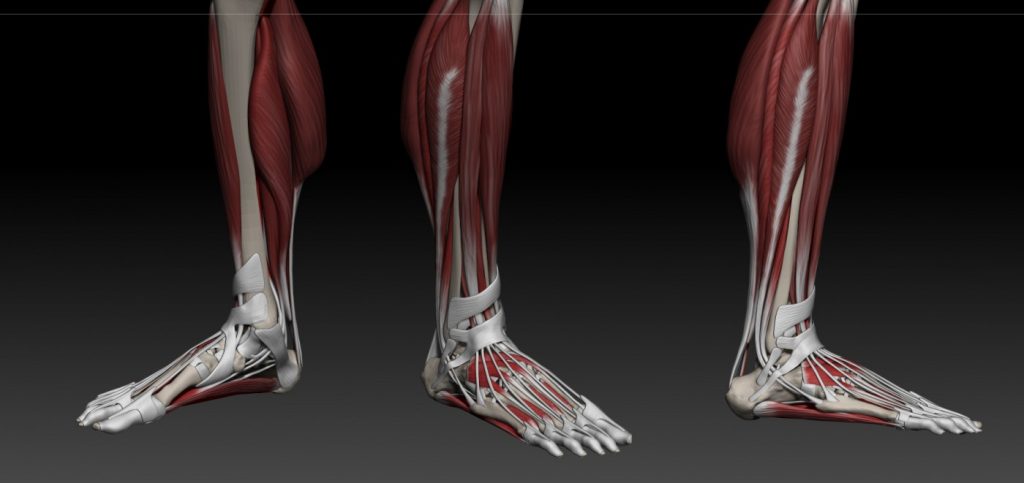
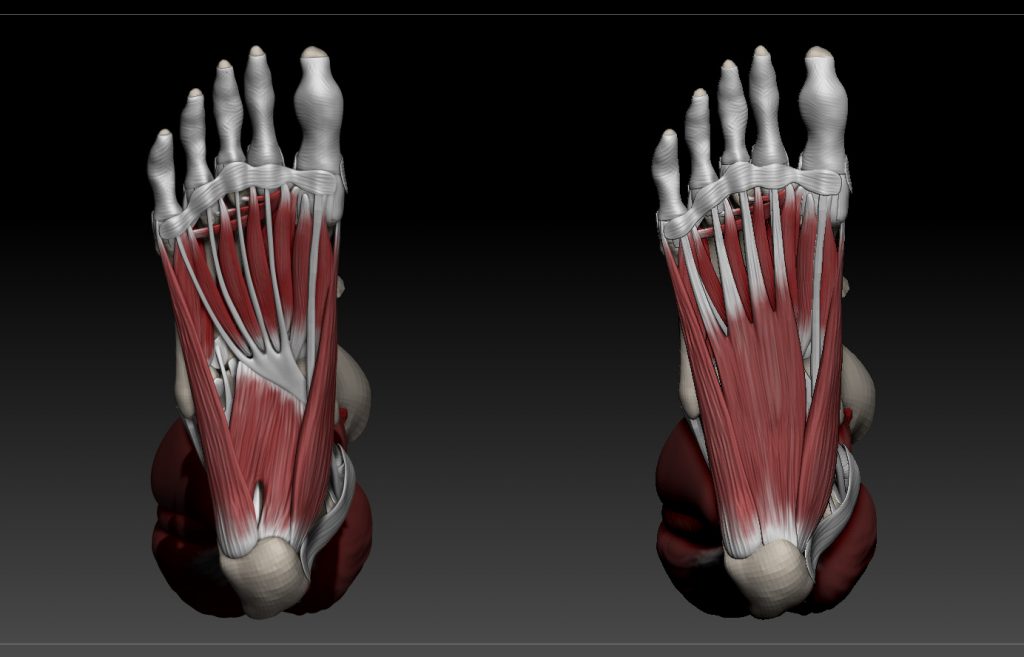
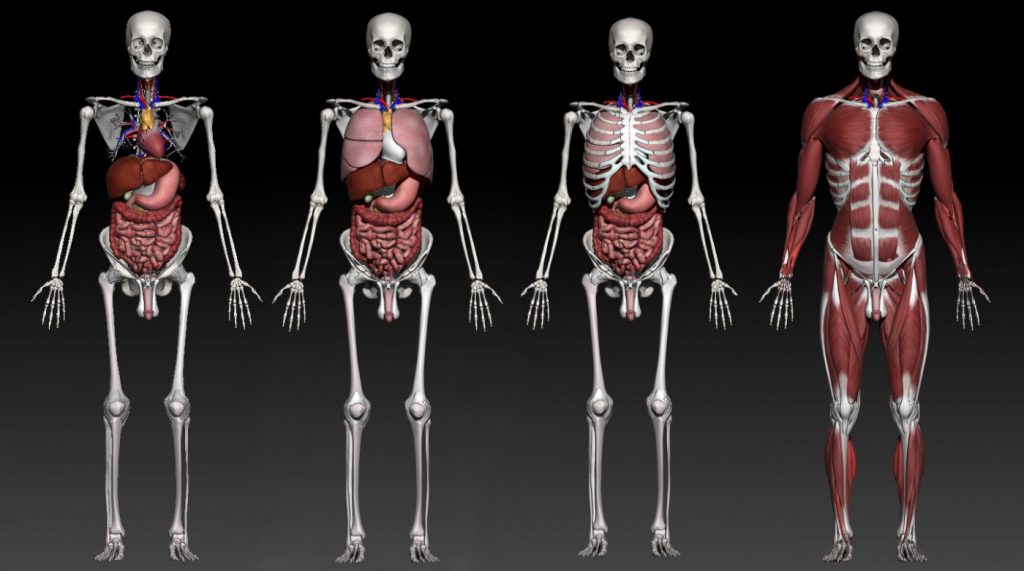
 Since 2014, the
Since 2014, the 
 The Horizon Europe (HEU) proposal templates are currently under development and have not been published yet. However, UKRO has obtained some information regarding the first version of the proposal template, which indicates that there will be several differences when compared with the Horizon 2020 proposal.
The Horizon Europe (HEU) proposal templates are currently under development and have not been published yet. However, UKRO has obtained some information regarding the first version of the proposal template, which indicates that there will be several differences when compared with the Horizon 2020 proposal. Every BU academic has a
Every BU academic has a  By clicking on this box, on the left of the Research Blog home page just under the text ‘Funding Opportunities‘, you access a
By clicking on this box, on the left of the Research Blog home page just under the text ‘Funding Opportunities‘, you access a 












 Fourth INRC Symposium: From Clinical Applications to Neuro-Inspired Computation
Fourth INRC Symposium: From Clinical Applications to Neuro-Inspired Computation Writing policy briefs
Writing policy briefs Upholding Excellence: The Concordat to Support Research Integrity
Upholding Excellence: The Concordat to Support Research Integrity Today’s Documentation Will Serve Tomorrow’s Justice
Today’s Documentation Will Serve Tomorrow’s Justice ECR Funding Open Call: Research Culture & Community Grant – Application Deadline Friday 12 December
ECR Funding Open Call: Research Culture & Community Grant – Application Deadline Friday 12 December MSCA Postdoctoral Fellowships 2025 Call
MSCA Postdoctoral Fellowships 2025 Call ERC Advanced Grant 2025 Webinar
ERC Advanced Grant 2025 Webinar Horizon Europe Work Programme 2025 Published
Horizon Europe Work Programme 2025 Published Horizon Europe 2025 Work Programme pre-Published
Horizon Europe 2025 Work Programme pre-Published Update on UKRO services
Update on UKRO services European research project exploring use of ‘virtual twins’ to better manage metabolic associated fatty liver disease
European research project exploring use of ‘virtual twins’ to better manage metabolic associated fatty liver disease